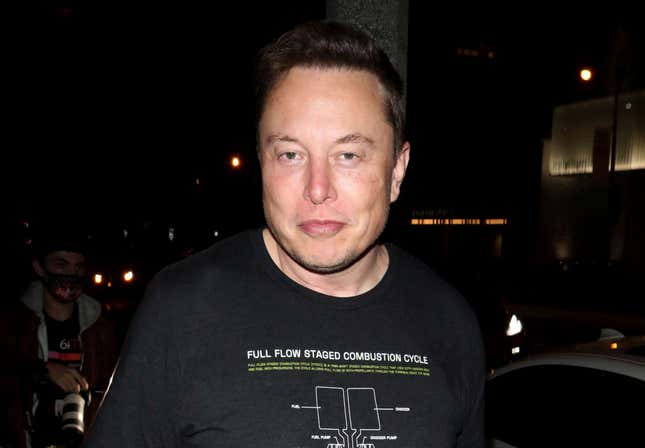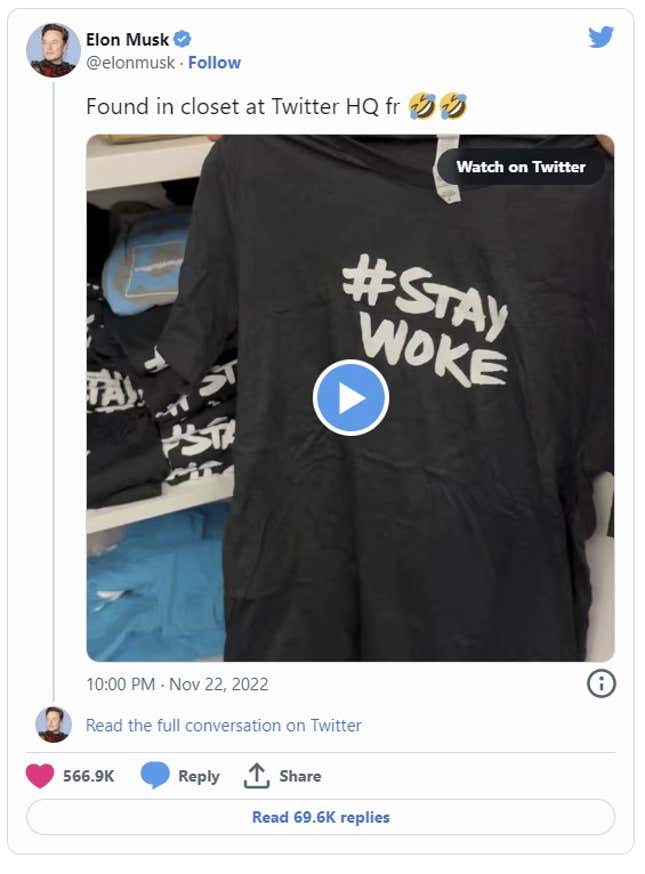
What’s undeniable is that as a company, Twitter has been an unmitigated disaster under Elon Musk’s ownership, marked by an explosion in hate speech, celeb defections from the platform, advertiser moratoriums, mass firings, a mass quitting and at least one firing of an exec that Musk initially begged not to quit.
What hasn’t been clear is what, exactly Musk thinks of Black Twitter, which is arguably the most critical community to have taken shape organically and to elevate Twitter’s relevance as a platform for conversation, activism and storytelling along the way. Before now, that wouldn’t have mattered. Nobody cared what Twitter co-founder and ex-CEO Jack Dorsey thought about Black Twitter, because it was undeniable that Black Twitter was good for business under his watch.
Musk, however, is a different story: his notions of “free speech” on the platform mean greenlighting the comeback of Donald Trump and other hatemongers and as a manager he’s fired thousands of employees who were part of an intentional internal strategy to attempt to make the company as diverse as the voices on its platform. And now, weeks into his tenure as “chief twit”, we have an idea of exactly what regard Musk holds Black Twitter and the community of Black staffers inside the company. The Independent reports on a Musk tweet, since deleted, in which he made light of t-shirts that had been created by the company’s “Blackbirds” employee resource group, and mocked the Black Lives Matter movement.

He went further by mocking Black Lives Matter protests in Ferguson, Missouri, which largely grew out of conversations and information sharing between Black activists and journalists on Twitter itself.
From The Independent
Hours later, he shared a post more explicitly attacking those T-shirts, claiming they “stem from Ferguson protests”. “Obama’s own DOJ proved this [and] exonerated the cop.”
Wilson had shot Michael Brown in self-defense, it strongly criticised the police department and its response to the protests that followed.
Musk’s right-wing leanings haven’t been a secret, nor it is a surprise that a man who owes his lifelong privilege to being the scion of a white family that owned jewel mines in apartheid-era South Africa might might at the least not be empathetic to Black victims of state violence in the U.S. But his open belittling of Black Twitter and the company’s employees is a different bag: the platform he’s remaking—or destroying, depending on who you ask—has at the very least been a crucial space for the development of the most recent iteration of social justice movements in the United States. It’s potency for amplifying messages is unrivaled—and that’s before you get to the role the company played in the careers of some of its Black execs.
For now, it seems like things may not be headed anywhere good for either group.

